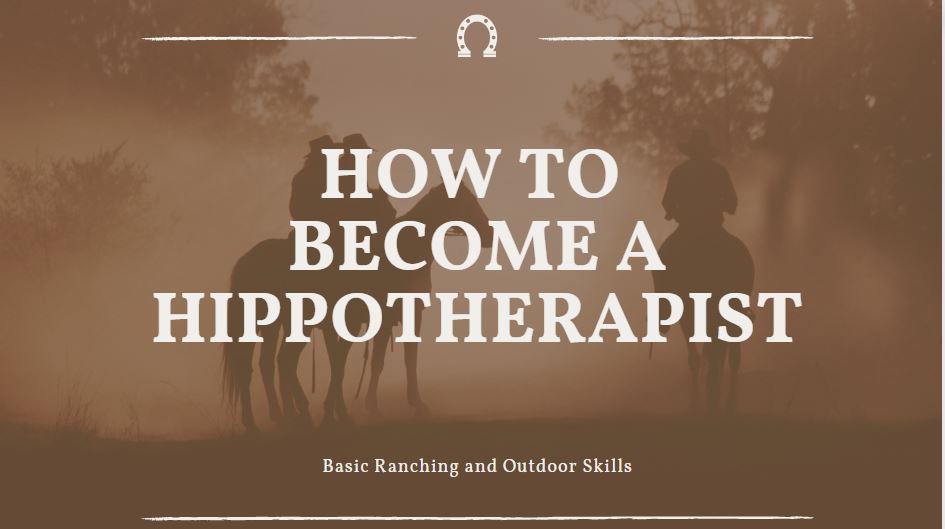Hippotherapy is a type of therapy that uses the movement of a horse to improve the physical, occupational, and speech-language skills of individuals with neurological and developmental disabilities. Becoming a hippotherapist requires a combination of education, training, and hands-on experience working with individuals and horses.
Education and Training Requirements :
- Bachelor’s degree in a related field such as occupational therapy, physical therapy, speech-language therapy, or a degree in equine studies.
- Complete a minimum of 200 hours of clinical training in hippotherapy through an accredited program or through the American Hippotherapy Association (AHA).
- Pass a certification exam through the AHA to become a Certified Hippotherapy Clinical Specialist (CHT).
American Hippotherapy Association (AHA)
The American Hippotherapy Association (AHA) is a professional organization that promotes the use of hippotherapy in the therapy treatment process and sets the standards for hippotherapy education and certification. The AHA provides training programs, resources, and networking opportunities for hippotherapy practitioners and offers a certification program for those who meet their education and training requirements.
Hippotherapy Jobs
Hippotherapy jobs are available in a variety of settings including private practices, rehabilitation centers, schools, and therapeutic riding centers. Job duties may include working with individuals with disabilities, designing therapy plans, supervising therapy sessions, and collaborating with other healthcare professionals.
Hippotherapy Certification Online
The AHA offers online courses and training programs for individuals interested in pursuing a career in hippotherapy. Online courses cover a range of topics including equine movement, therapeutic riding techniques, and working with individuals with disabilities. These online programs are a convenient way to gain the education and training necessary to become a CHT.
Hippotherapy Salary
The salary of a hippotherapy practitioner depends on several factors including location, type of employer, and level of experience. According to Glassdoor, the average salary for a hippotherapy practitioner is $60,000 per year.
To become a hippotherapist, you should:
- Acquire a degree in equine science or related field
- Complete a certified hippotherapy training program
- Gain hands-on experience working with individuals with disabilities
- Obtain certification from a professional organization, such as the American Hippotherapy Association
- Maintain continuing education to stay current in the field.
In conclusion, becoming a hippotherapist requires dedication and hard work, but it can be a rewarding career for those who are passi
Is a degree in equine studies necessary to become a hippotherapist?
No, a degree in equine studies is not necessary, but a bachelor’s degree in a related field such as occupational therapy, physical therapy, or speech-language therapy is required.
How many hours of clinical training are required to become a CHT?
A minimum of 200 hours of clinical training in hippotherapy is required to become a CHT.
Can the education and training required to become a CHT be completed online?
Yes, the AHA offers online courses and training programs for individuals interested in pursuing a career in hippotherapy.
Table: Hippotherapy Requirements and Overview
| Requirement | Overview |
|---|---|
| Bachelor’s degree | Required in a related field such as occupational therapy, physical therapy, or speech-language therapy. |
| Clinical training | A minimum of 200 hours in hippotherapy through an accredited program or the AHA. |
| Certification | Pass a certification exam through the AHA to become a CHT. |
| American Hippotherapy Association (AHA) | Professional organization promoting the use of hippotherapy and offering education, training, and certification. |
| Job opportunities | Available in private practices, rehabilitation centers, schools, and therapeutic riding centers. |
| Salary | Average salary of $60,000 per year (source: Glassdoor). |
onate about helping individuals with disabilities and enjoy working with horses.
